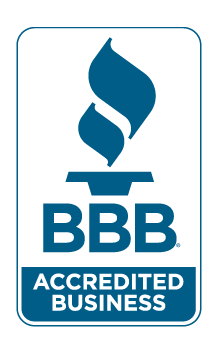We are moving through the AEP season. That means we are also down to the last few weeks before the Holiday season takes precedence in the lives of our clients and prospects. It also means the deadliest time of year is coming upon us…Winter.
The holidays bring up memories of those people close in our lives that passed and will no longer be sitting at the dinner table. You’ve often heard me say life insurance sales depend on the stories we tell. Putting our prospects in the moment, the moment they see themselves out of the family picture and the burden that could be left behind.
A Holiday story I tell is “…during this time of year, my wife and I bring out our wedding album and start looking at all the pictures of relatives that are no longer with us. We also think of my mother in-laws last Christmas…” These can be powerful images when you’re having a conversation with your prospects.
Agents who change up their conversations to reflect the time of year putting prospects in that moment close more sales. This time of year is difficult at best to garner the number of mortgage protection or final expense appointments we need to be consistent and get us through Thanksgiving week as well as Christmas & News Year’s week.
Thanksgiving is late this year so, we only have a solid two weeks left to add some serious sales to the coffers in order to get us through the Holiday season. The first three weeks of December before the Christmas Holiday we’ll see our life insurance appointments down by 75% from these next couple of weeks in November.
That means we need to take every opportunity to make those precious appointments count. It means being on your game telling great, not good, stories; recommending great solutions, not just saving a prospect some money.
With all the uncertainty in our culture these days, saving a prospect $20 a month in premium is not a good enough reason to replace a policy. Saving $50 a month with more coverage putting them in a significantly better position, is.
To make that happen, we need to do some soul searching on our ethics. Asking ourselves are we acting in the very best interest of our prospects and clients; are we explaining the contestable clock starting over and is that going to be an issue if they passed the day after the new policy effective date?
The worst thing we can do during a replacement opportunity is start out a conversation with “…I can save you x-number of dollars by replacing your old policy…” I never do that in a replacement environment.
The first thing I do say is “…if you’ve had your life insurance policy for two years or more than most likely you should keep it…we can look to see if that changes after we take a closer look at what we’re trying to do, but a good rule thumb is two years or more it’s better to keep that policy.”
A simple statement like that defuses any anxiety a prospect might have and adds credibility as I’m not going to take advantage them or recommend something that’s not in their best interest. I have countless stories from clients who have said their previous agent was only interested replacing without giving them any real information as to why their option is better than keeping their old policy.
If our modus operandi is telling people that their term policy is not mortgage protection because it didn’t come from you or that their whole life insurance policy from XYZ company isn’t any good, then were not acting ethically. We’re lying plain and simple. This behavior gives us all a bed name and is the quickest way to an E&O claim, fines, and licenses canceled.
If you are going to replace an existing policy, then have the reason why your recommendation is putting them in a better position. If you’re saying their current policy is not Mortgage Protection or their Final Expense whole life insurance is not what they think it is, then show them why.
When we’re talking with clients and especially prospects, use plain language they’ll understand. Using “insurance speak” does not add credibility it confuses people leaving them to feel inept. Not only that but, no one likes a show off.
Having a client or prospect sign a life insurance application without fully understanding what their signing is an ethical violation. Think of it this way, if an insurance carrier would cancel an application as a result of what you either did or did not do, then you’re not following ethical guidelines.
Ethics should not be doing something you feel you can get away with when no ones looking. Its about doing what’s right even when no one is looking. Honoring this level of ethics will always bring you rewards. Rewards in referrals and commissions.
© Copyright Legacy Secure on MI Inc






